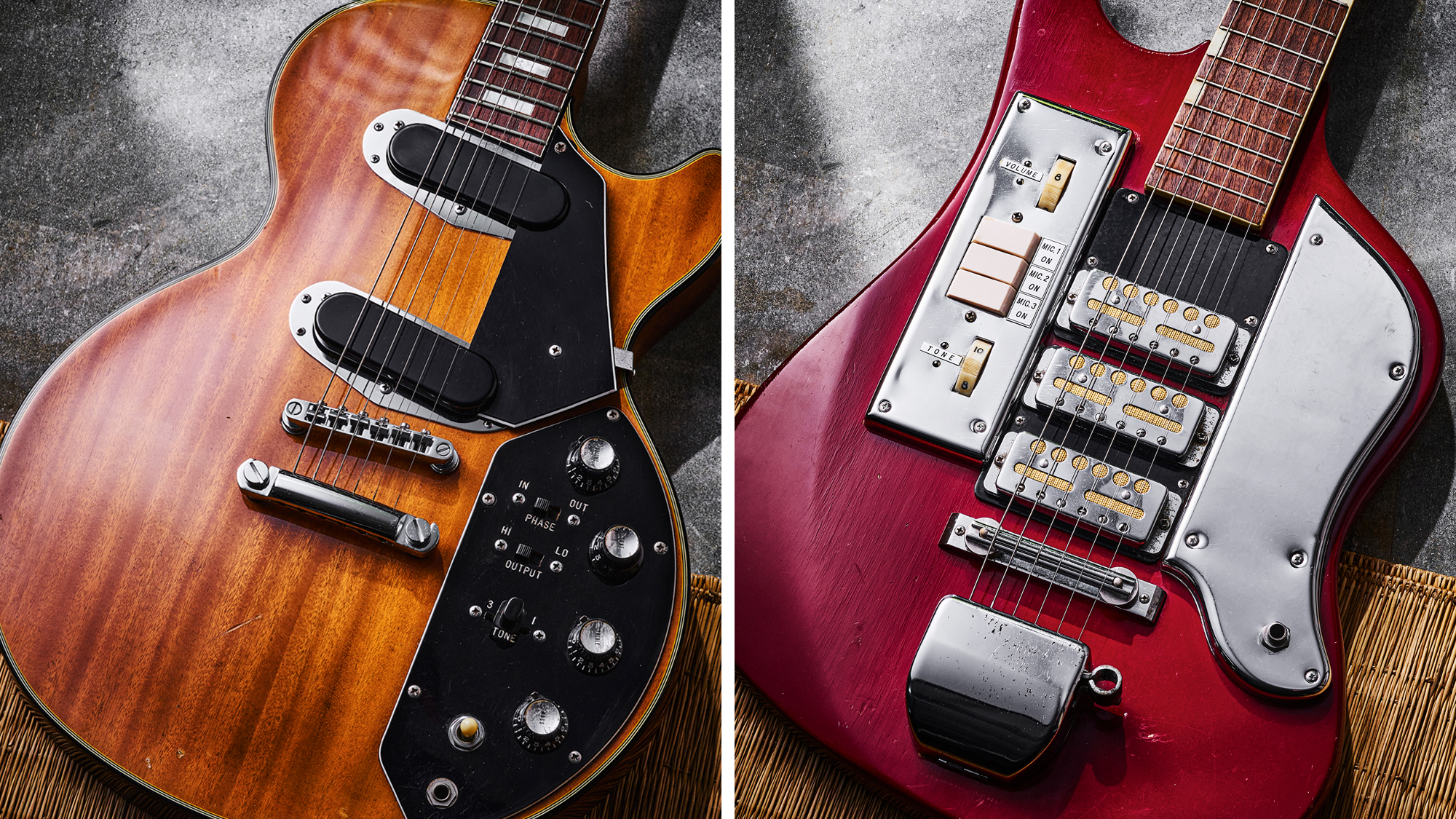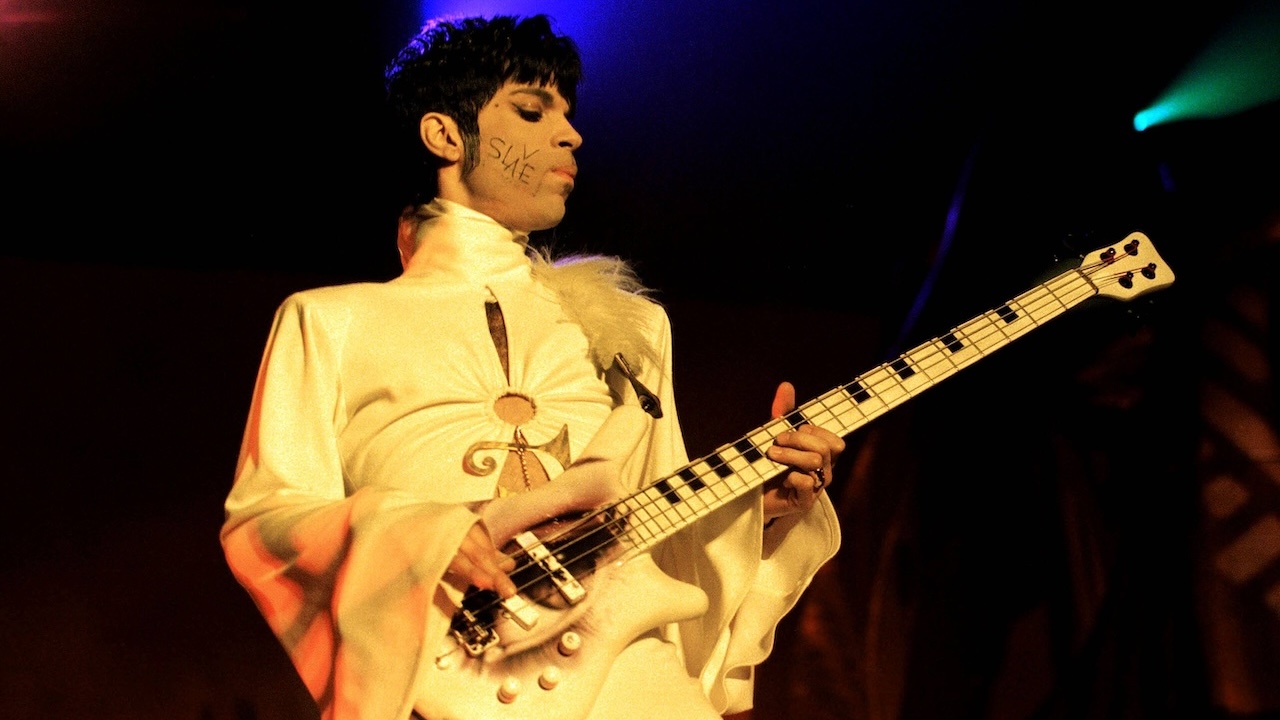“I got that bass for $50 off this coke dealer. I don’t know what Jaco did to it, but he totally messed up the insides!” How Cro-Mags’ Harley Flanagan went from buying a Jaco Pastorius bass on the street to fronting one of hardcore’s most influential bands
The Cro-Mags founder on the reason he plays Fenders despite loving Rickenbackers, learning from Lemmy and the new documentary about his struggle for survival

Harley Flanagan made a home for his furious bass playing and its savage edge in the Cro-Mags, leaving an indelible mark with 1986 debut album Age of Quarrel. He credits Bad Brains’ Darryl Jenifer, Motorhead’s Lemmy and Black Sabbath’s Geezer Butler as key influences.
Surprisingly, he also dug into jazz records by the Mahavishnu Orchestra and Weather Report. “I used all those ingredients and found myself somewhere in the middle,” Flanagan tells Bass Player. “When I started listening to a lot of crazy shit, that’s when I started getting ideas.”
While the Cro-Mags defined a generation by combining punk, hardcore and thrash, Flanagan “fell off the wagon hard” in the ’90s. “I stopped going to those types of shows,” he says.
But in the ’10s he was back on the hardcore scene, winning a legal battle over the band name, releasing new music, his biography, Hard-Core: Life of My Own, and an upcoming documentary, Wired for Chaos.
“My whole life has been fucking intense” he says. “It’s worth checking out, man. I’m still shocked that it all happened, and that I’m still here.”
Cro-Mags are still here, too. “I don’t think you can measure the impact we’ve had. It’s still being felt. New generations of kids eventually backtrack and discover us.”
You played drums with the Stimulators but transitioned to bass after founding the Cro-Mags. What led to that?
Get The Pick Newsletter
All the latest guitar news, interviews, lessons, reviews, deals and more, direct to your inbox!
“I’d started playing bass when I was in the Stimulators, but I didn’t make the switch until the end of ’83, when I did my first recordings on bass. That happened because I was writing so much music, and from the drummer's place it became too much to keep teaching other people.”
What was your rig like then?
“I didn’t own any gear – I was playing a bunch of loaners. I had a Guild Starfire, which was eventually given to me, and that wound up as my first bass. I had an Ibanez Musician bass, which had actually belonged to Jaco Pastorius. That’s what I used on The Age of Quarrel.
“After that I got a Guild Pilot, which is what I’ve played on the majority of my records since then. It’s an amazing instrument. I love it. But I don’t really bring it out on tour anymore.”
How did you end up with one of Jaco’s basses?
“I grew up in the same neighborhood on the Lower East Side, so I had several Jaco encounters in my youth. He was an absolute nut! I got that bass for $100 off this coke dealer I knew. He’d traded it for an eight-ball of coke or some shit. He was like, ‘You wanna buy a bass?’ I’m like, ‘Sure!’
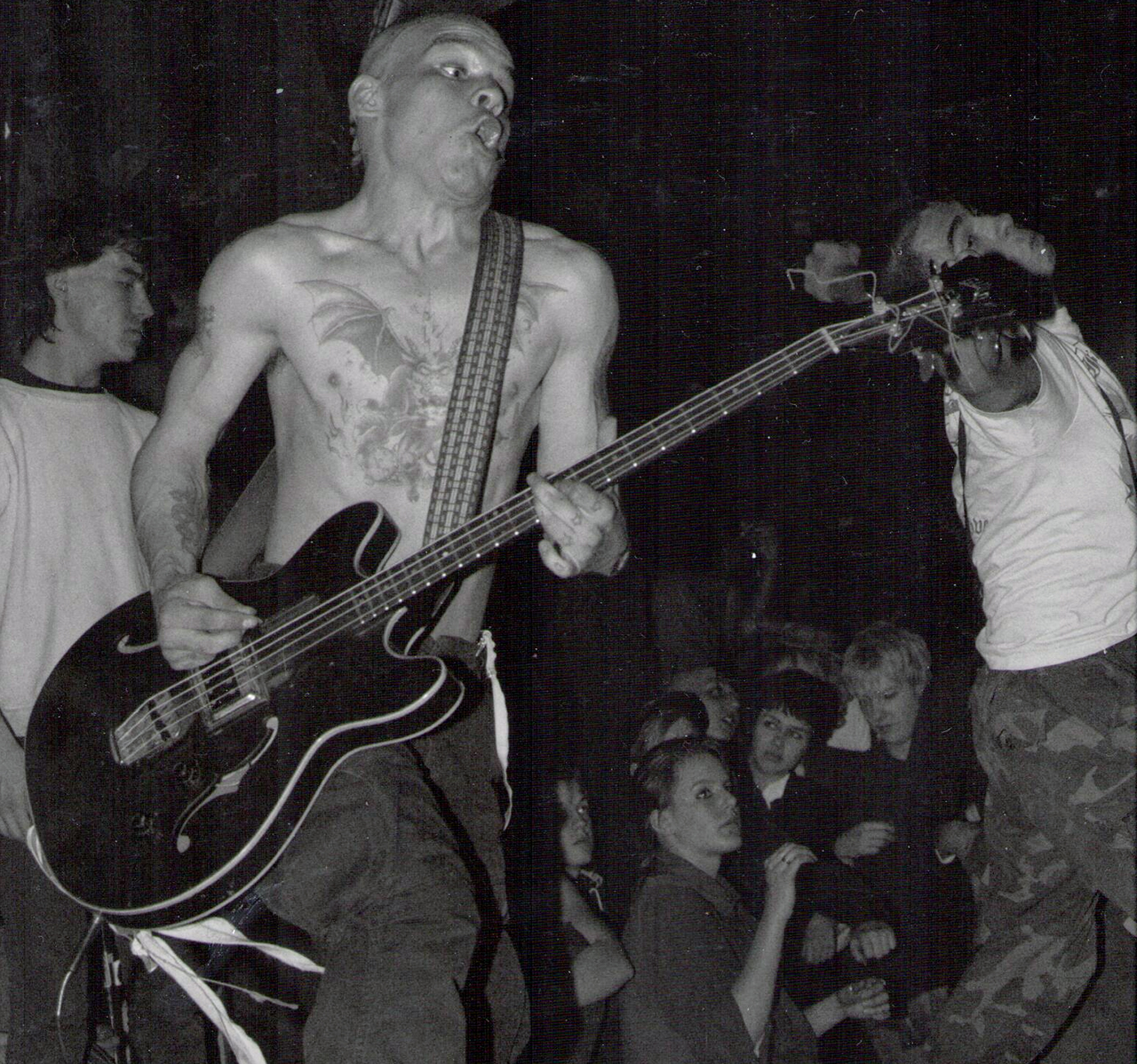
“I think I wound up only giving him $50 – that’s all I had. So I have a Jaco bass. It’s not a bass that you’ve probably seen him play; it’s an Ibanez Musician, and he mostly played Fenders and stuff.”
Do you know where he got it from?
“It was given to him when he was in Japan. I contacted Ibanez to see if they could trace the serial number, but it was before they were keeping track of all that. But I know it was his because an eight-ball of coke was traded for it!”
What are some of the specs of that bass, and what was it like recording with it?
“The funny shit is that it’s got this built-in preamp. I don’t know what the fuck Jaco did to it, man. He opened it up and tried to do some surgery on it himself. Whatever he did, he totally fucked up the insides!
“You turn on that preamp, and it’s like, ‘The fucking amp is going to explode! What is this – a self-destruct button?’ It has all kinds of insides lined with tin foil, weird wires and shit that definitely doesn’t belong there. It’s in the punk rock museum in Las Vegas right now.”
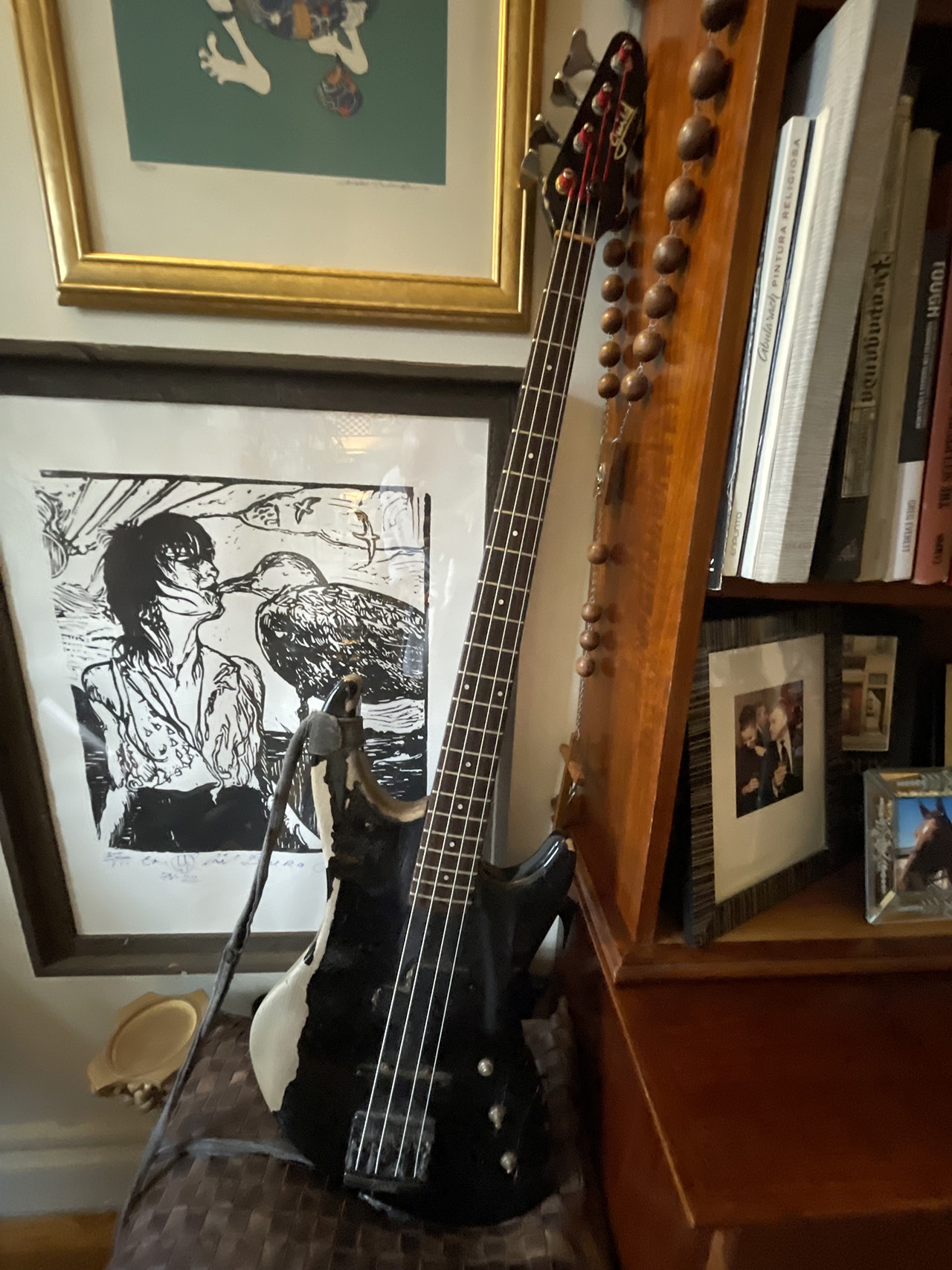
What amps and pedals defined your sound back then?
“The demos sound better than the actual Age of Quarrel album. If you listen to the Before the Quarrel demos, you’ll hear the Guild hollowbody bass I played. I was playing it through an Acoustic amp, and I may have been using a Pro Co Rat distortion pedal.”
Cro-Mags toured with Motorhead in the ’80s. Was Lemmy a big influence on you?
“I grew up on Bad Brains – I saw them live more than anybody else. I learned a lot from watching Darryl Jenifer play. He was kind of my mentor, and one of the only people that really showed me anything on bass.
Everybody knows that with a Fender you can pretty much take a door down and not even go out of tune!
“When I had the great fortune of going out with Motorhead and doing around 50 shows, I became very close with Lemmy and learned a lot from him. I literally watched not only every show they did, but every soundcheck.”
Cro-Mags are credited as being one of the first to merge punk with thrash metal. Did you know you were doing something innovative?
“I knew it was different because it wasn’t straight hardcore, you know? It was going someplace different; I don’t think ‘thrash’ was really a term when we started playing with metal bands.
“When we were going on tour with Anthrax, that’s when the term really came up. But to me it’s all the same shit. Not that much has changed since fucking Chuck Berry!”
Where did your career take you in the ’90s?
“I was not part of the hardcore scene much past the ’80s. I couldn’t fucking tell you what was going on! It’s a miracle that I survived the ’90s and that I still have most of my brains, my health, and most of my instruments!”
You picked yourself up in the 2000s, and had to fight for the Cro-Mags name.
“Things happen in life that test you – make you dig deep and decide what kind of man or woman you really are. I got hit with some really intense tests, and I had to rise to the occasion or just fail. When you dig deep, I believe you find the strength to conquer. You have to have the will and perseverance.”
There’s a documentary on the way about your journey. What’s the story there?
“We had its premiere in New York at Doc NYC, an A-list film festival for documentaries. It was played at the Slamdance Film Festival in Los Angeles, and we just got invited to Brazil and Spain. If you want to know what helped me get my life back together, the film dives deep.”
Cro-Mags is set to hit the road with Danzig this spring. What’s your rig like?
“I have several Rickenbackers, but I tend to beat the shit out of them too much on tour because they’re a little fragile. I really smash my instruments, so because of that I’ve been using mostly Fender.
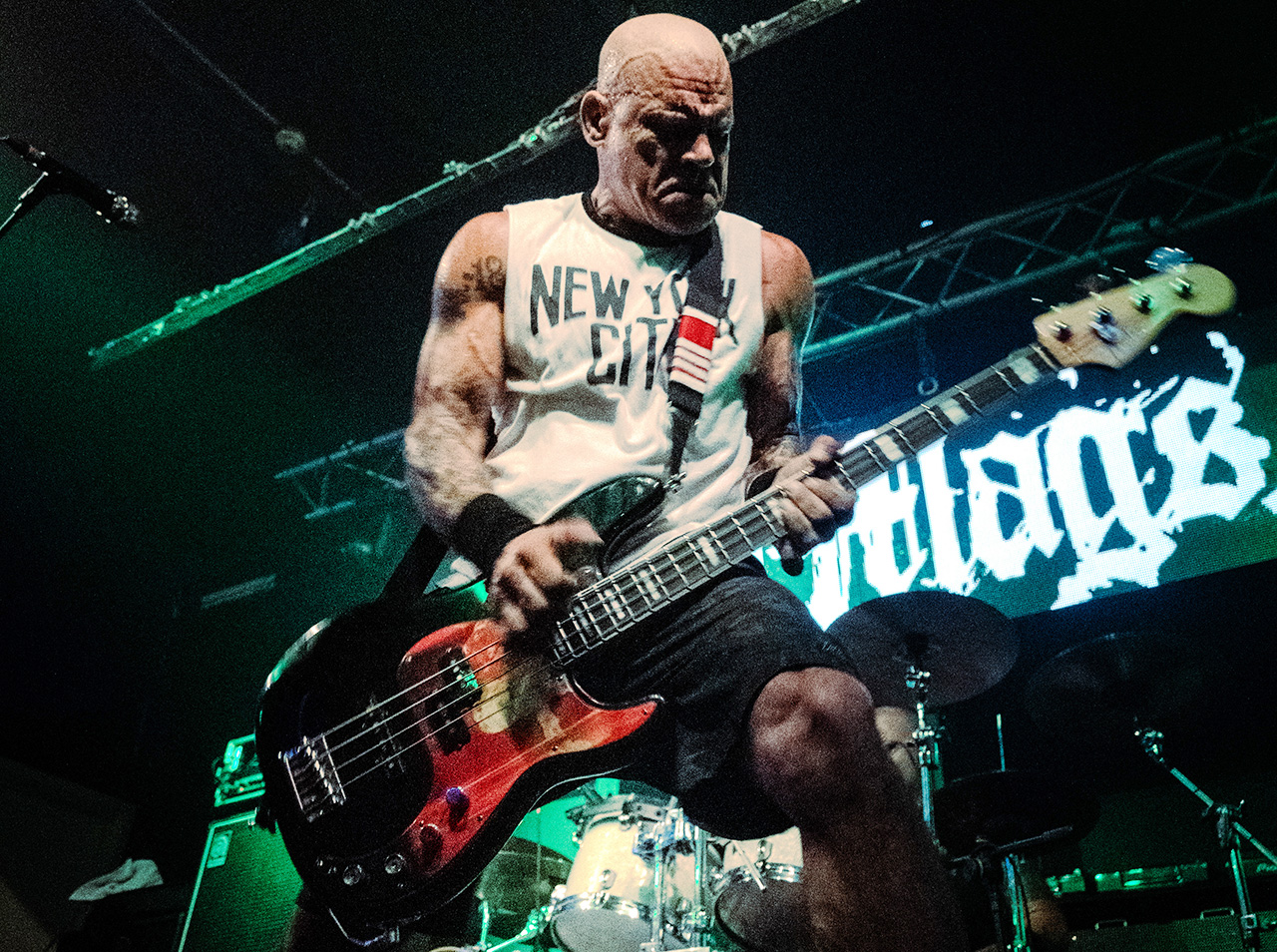
“Everybody knows that with a Fender you can pretty much take a door down and not even go out of tune! They’re reliable, almost indestructible, and they sound fucking great. I’ve been blessed that Fender has been making me custom basses that have Precision bodies and Jazz necks. They’re my go-to on tour.
“I’ve mostly been an Ampeg guy; they’re just so reliable. You can fucking plug a broom into them and it’ll sound great! I always bring it with me no matter what bass I use. That and my Rotosound strings.”
You seem to be in a really good place after a lot of hard years. What’s your outlook as you move forward?
“My life has turned out so amazing. I’m so excited about what the future has the potential to offer. I feel like I’ve survived the rough spots. Physically and mentally, I’m totally on top of my game. I’m recording a new record, the fucking movie is out, and I’m going on tour – man, it really could not be better.”
- For more information on Flanagan’s documentary, head to Wired for Chaos.
Andrew Daly is an iced-coffee-addicted, oddball Telecaster-playing, alfredo pasta-loving journalist from Long Island, NY, who, in addition to being a contributing writer for Guitar World, scribes for Bass Player, Guitar Player, Guitarist, and MusicRadar. Andrew has interviewed favorites like Ace Frehley, Johnny Marr, Vito Bratta, Bruce Kulick, Joe Perry, Brad Whitford, Tom Morello, Rich Robinson, and Paul Stanley, while his all-time favorite (rhythm player), Keith Richards, continues to elude him.
You must confirm your public display name before commenting
Please logout and then login again, you will then be prompted to enter your display name.
“I asked him to get me four bass strings because I only had a $29 guitar from Sears”: Bootsy Collins is one of the all-time bass greats, but he started out on guitar. Here’s the sole reason why he switched
“I said, ‘If I could have it my way it would sound like this,’ and I pulled the bass guitar out of the mix”: Why Prince stripped the bassline from one of his biggest hits










